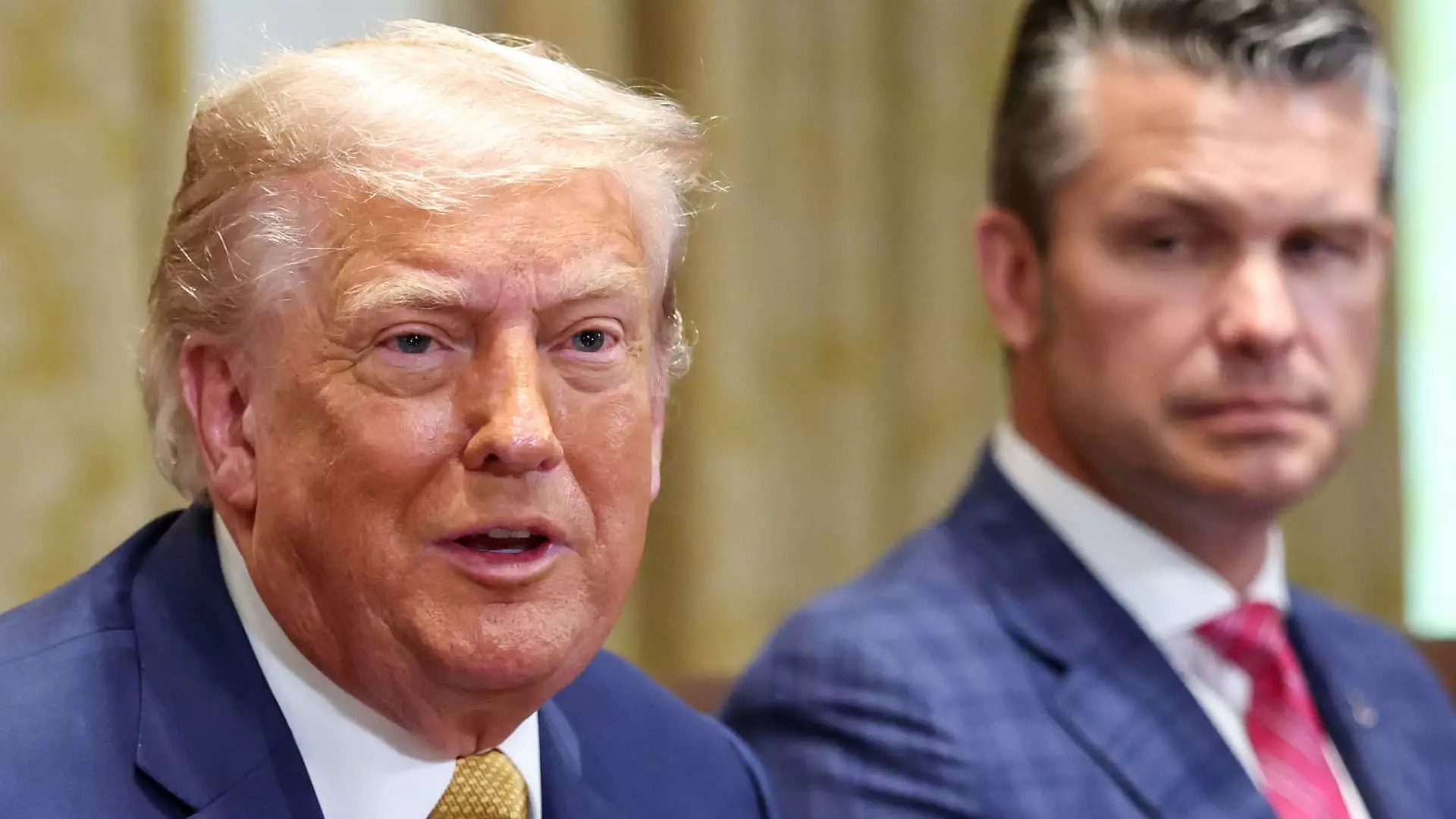The looming specter of massive tariffs on imported pharmaceuticals signals more than just a trade dispute; it reveals a concerning willingness to undermine an industry that is integral to the health of millions. President Trump’s recent call for tariffs reaching up to 200% underscores a reckless approach to economic policy—one that risks crippling the very sector that supplies life-saving medications. While triggered by populist rhetoric about protecting American manufacturing, such drastic measures could backfire spectacularly, affecting drug prices, innovation, and access to essential medicines. It’s a gamble that threatens to undermine the stability of America’s healthcare system in favor of short-term nationalist posturing.
Impact on Innovation and Investment is Inescapable
Pharmaceutical companies have invested heavily in the United States, partly motivated by the promise of a stable and lucrative market. However, the introduction of steep tariffs jeopardizes this dynamic by inflating costs and discouraging investment. Manufacturers might be forced to divert their research and development funds elsewhere or relocate operations to avoid punitive levies, ultimately stifling innovation domestically. Such a move would not only harm the industry’s growth prospects but could also slow down breakthroughs in medicine—delays that could cost lives.
Furthermore, consumers face the risk of skyrocketing drug prices. When tariffs increase production costs, pharmaceutical companies are unlikely to absorb the entirety of those costs; instead, they’ll pass them onto patients. This could generate a ripple effect across the healthcare system, making affordable treatment increasingly elusive for many Americans. Public health, therefore, takes a direct hit when tariffs are wielded as political tools rather than strategic policies grounded in economic realities.
Strategic Missteps and Political Posturing
President Trump’s repeated threats to impose enormous tariffs appear to be less about strategic trade policy and more about political posturing. The history of these threats suggests a pattern of issuing ultimatums without clear plans for implementation. The administration’s delay in enforcement—offering a “year or a year and a half” window—only adds uncertainty and confusion. Markets are already volatile enough without unpredictable policy shifts.
The notion that tariffs will incentivize companies to relocate manufacturing to the U.S. risks oversimplifying the complexities faced by global supply chains. Many pharmaceutical firms already have manufacturing operations in the U.S., and relocating is neither cheap nor quick. Instead, these threats may serve as a distraction from broader issues like drug pricing reforms or innovation incentives. The administration’s focus on tariffs as a solution sidesteps the real challenge: fostering a sustainable, competitive pharmaceutical industry rooted in innovation and fair regulation.
Balancing National Interests with Global Realities
While safeguarding America’s manufacturing sector is an understandable goal, punishing imports with exorbitant tariffs ignores the nuanced reality of global trade and production. The U.S. pharmaceutical industry benefits from international supply chains that allow for cost efficiencies and diverse inputs. Disrupting these could have unintended consequences—delayed drug deliveries, shortages, or reduced quality standards.
If the goal truly is to protect American interests, policies should focus on fostering innovation through sensible regulation rather than punitive tariffs. Encouraging domestic manufacturing is vital, but it should be achieved by creating a competitive environment—through tax incentives, reduced bureaucratic hurdles, and targeted R&D funding—not by tariffs that risk isolating the U.S. from the global pharmaceutical landscape. Ultimately, economic nationalism at this level threatens to do more harm than good, undermining America’s position as a healthcare leader rather than enhancing it.
In the end, imposing such tariffs might appeal to populist sentiments, but the long-term damage to America’s healthcare infrastructure, innovation capacity, and economic stability outweighs any fleeting political wins.

